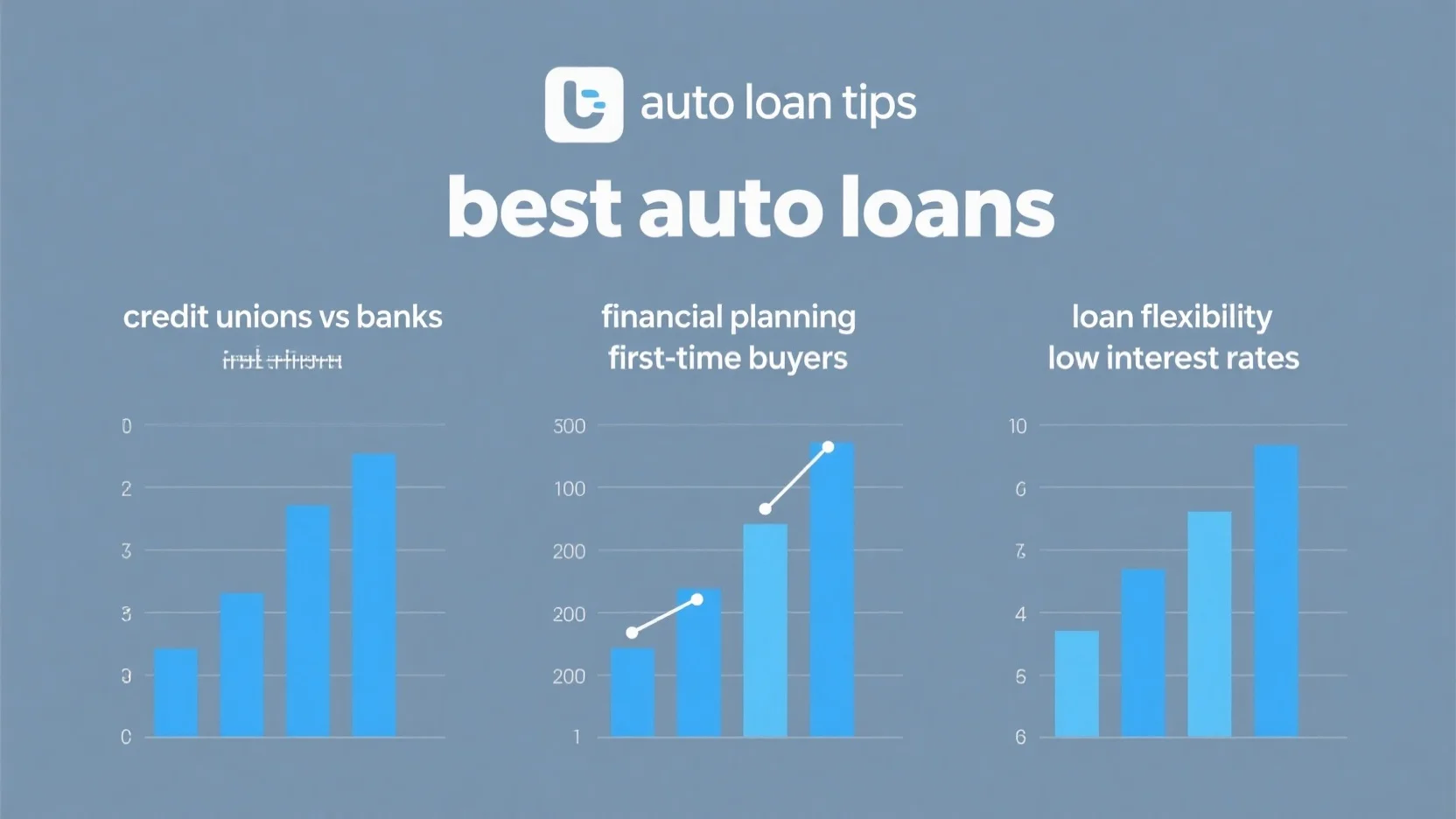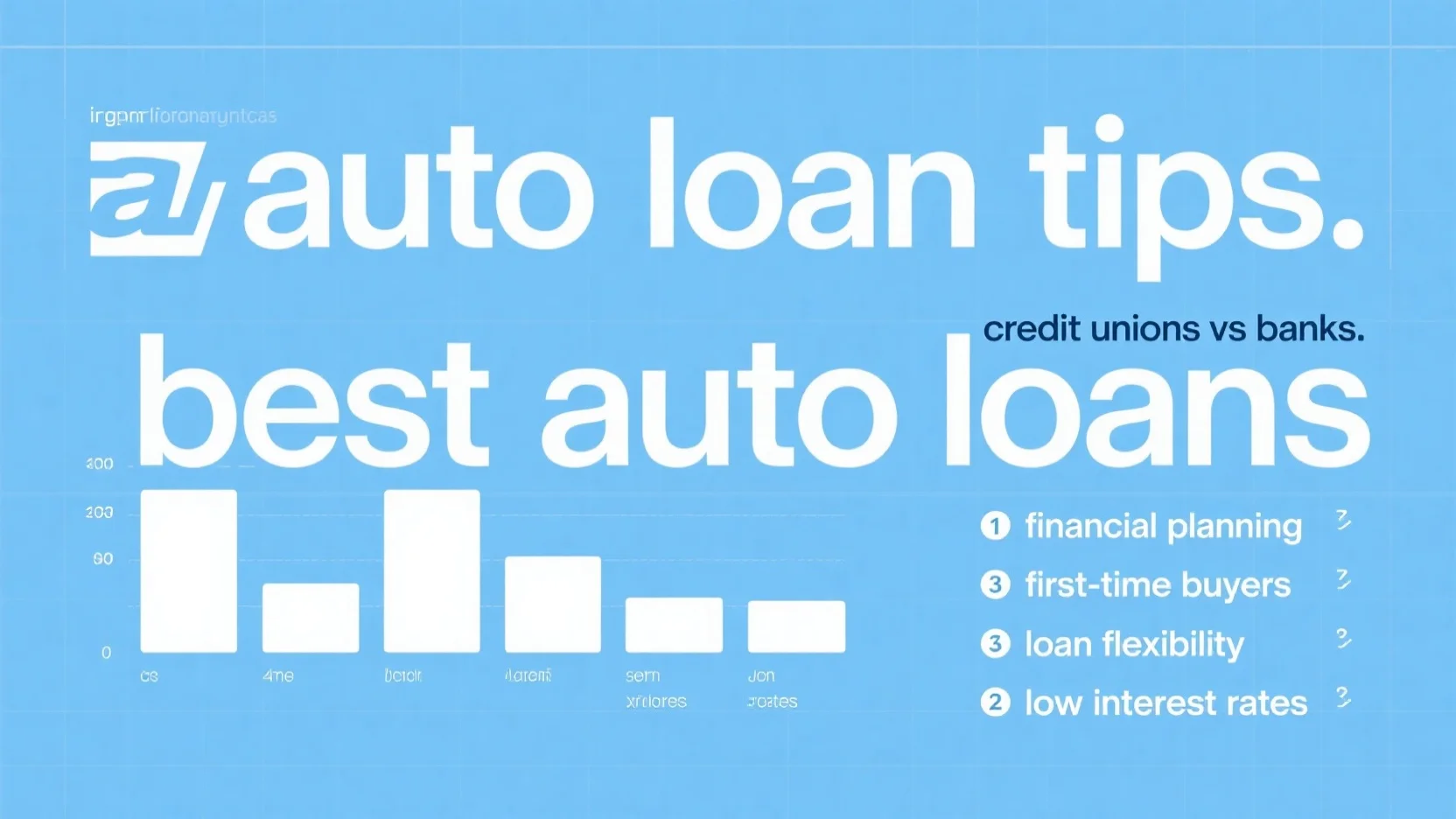
How Credit Unions and Banks Differ in Auto Loan Offers

Image Source: pexels
Choosing between a credit union and a bank for a car loan can be confusing, especially for first-time buyers seeking the best auto loans for first-time buyers. Credit unions usually have lower rates and easier repayment plans. For example, a 60-month car loan averages 6.36% at credit unions but 7.39% at banks.
Credit unions focus on helping their members with better loan deals. Banks, however, are open to everyone and are more convenient.
Knowing these differences helps new buyers find the best auto loans for first-time buyers that suit their needs.
Key Takeaways
- Credit unions usually have lower interest rates than banks. This makes car loans cheaper for people buying their first car.
- Being part of a credit union gives flexible payment options. They also offer personal help, which can improve money management.
- Banks are convenient because they have more branches and apps. They are great for people who want fast and easy loan access.
Interest Rates and Loan Terms
Comparing Interest Rates: Credit Unions vs Banks
Interest rates decide how affordable a car loan is. Credit unions usually have lower rates than banks. For example:
- A 60-month new-car loan is 6.36% at credit unions. Banks charge about 7.39% for the same loan.
- A 48-month used-car loan is 6.42% at credit unions. Banks offer it at around 7.69%.
Credit unions can offer lower rates because they are nonprofit. They focus on helping members instead of making profits. Banks, however, aim to earn money, so their rates are higher.
Loan Term Flexibility for First-Time Buyers
First-time buyers often need flexible loan terms to manage money well. Credit unions are better at offering flexible repayment plans. Since they are nonprofit, they use earnings to improve loan options. This helps members find plans that fit their budgets. Banks are less flexible because they focus on making profits.
How Lower Rates Benefit First-Time Buyers
Lower interest rates make borrowing cheaper overall. First-time buyers save more money with lower rates. Credit unions’ lower APRs are great for new buyers. They help reduce monthly payments and provide financial stability.
Eligibility and Membership Rules
Joining a Credit Union
To get a loan from a credit union, you must join first. Membership depends on certain rules. You might need to live in a specific area, work in certain jobs like teaching, or belong to a group. Some credit unions let you apply for preapproval before joining. But to finish the loan process, you must become a member. Joining is easy and can be done online or by phone.
Members get special perks like lower rates and flexible payments. These benefits make credit unions a good choice for first-time car buyers. Credit unions care about their members’ finances and help them get great car loans.
Banks Are Open to Everyone
Banks give car loans to anyone who qualifies. Unlike credit unions, banks don’t need you to join. This makes banks easier for many people to use. Banks also have more locations and online tools to make applying simple.
Banks may not have the lowest rates, but they offer steady service. For first-time buyers, banks are a good choice if you want convenience.
Credit Scores Matter for First-Time Buyers
Your credit score affects your chances of getting a car loan. Both banks and credit unions check your score. A higher score means better loan deals, like lower rates. Credit unions are often kinder to people with low scores. They may still offer good rates and look at other things, like steady income, to approve loans.
First-time buyers should know how credit scores affect loans. Credit unions often give the best deals, even if your credit isn’t perfect.
Fees and Discounts
Common Fees with Auto Loans
Auto loans often include extra costs to think about. These fees differ between credit unions and banks. Common fees are:
- Loan Origination Fees : A small part of the loan is charged to process it.
- Late Payment Fees : If you miss a payment, you may pay a fine.
- Title and Registration Fees : These are needed to officially own the car.
Credit unions usually have fewer or cheaper fees than banks. Since they are nonprofit, they focus on helping members. Banks, however, charge more fees to make money. First-time buyers should check all fees before choosing a loan.
Autopay Discounts and Savings
Some lenders give discounts if you set up automatic payments. These autopay savings can lower your interest rate by 0.25% or more. Credit unions also offer extra deals, like rewards or special promotions.
Tip : Autopay helps you save money and avoid late payments. It can also boost your credit score.
Banks may have discounts too, but they are often smaller than those from credit unions. First-time buyers should ask about discounts to save as much as possible.
Prepayment Penalties
Paying off a loan early can save interest, but some lenders charge penalties. These penalties are usually 2% of what you still owe. For example, if you owe $7,000, the penalty would be $140.
Not all lenders charge these penalties. Some states don’t allow them at all. In 36 states and Washington D.C., penalties are allowed for loans under 60 months. Federal law bans penalties for longer loans.
Note : First-time buyers should ask if their lender charges prepayment penalties. This can help them make a better choice.
Customer Experience and Accessibility
Personalized Service at Credit Unions
Credit unions are great at giving personal service. Members like easy sign-ups and combined financial tools. These features make managing money simpler. Discounts based on spending habits are also offered. This shows credit unions care about members’ needs.
Studies say 63% of people want personal service when sharing data. Credit unions use tech like contactless cards and digital wallets to meet this need. They also let members talk to real people, which 40% of people prefer. This focus makes credit unions special.
Convenience and Technology at Banks
Banks use advanced tech to make loans easy and fast. You can apply for loans online anytime. Real-time payment tools help you pay loans quickly. Signing documents online saves time and makes the process smoother.
| Technology Solution | Benefit |
|---|---|
| Digital Loan Application System | Apply for loans anytime, making it simple and quick. |
| Real-time Payment Tools | Pay loans easily in different ways, improving satisfaction. |
| Online Document Signing | Speeds up steps and makes the process easier for users. |
| Fully Digital Loan Process | Keeps the loan process efficient and fully online. |
These tools make banks a good choice for first-time buyers who want convenience.
Accessibility for First-Time Buyers
First-time buyers often need help understanding auto loans. Credit unions give advice and flexible terms, even for those with low credit. They focus on helping members succeed financially.
Banks have many branches and online tools for easy access. Their digital systems make applying for loans simple. Both banks and credit unions offer different benefits. Knowing these differences helps buyers pick the best option for their needs.
Best Auto Loans for First-Time Buyers
Why Pick a Credit Union
Credit unions are a great choice for first-time car buyers. They are nonprofit, so they offer lower interest rates. This helps save money on borrowing costs. Credit unions also have flexible repayment plans. These plans make it easier to stick to a budget.
Credit unions also teach members about money and loans. They explain the loan process clearly to help you understand. Some even have school programs to teach kids about finances early. These benefits make credit unions helpful and affordable for new car buyers.
Why a Bank Might Work Better
Banks are good for people who want quick and easy service. They have many branches and online tools to apply for loans. You can do everything from home using their digital systems.
If you need speed and convenience, banks are a smart choice. Their rates might be higher, but the ease of use can be worth it. Banks also don’t require memberships, so anyone can apply. This makes them a good option for many buyers.
Questions to Ask Before Deciding
First-time buyers should ask important questions before picking a lender:
- Are there extra fees I should know about?
- What are the repayment options?
- Are there any special deals or discounts?
- Does the car come with a warranty?
- Can I take the car for a test drive?
These questions help you compare lenders and avoid surprises. Knowing the details helps you pick the best loan for your needs. By asking these, you can feel confident in your choice.
Credit unions and banks have different advantages for car loans. Credit unions usually have lower rates and more personal help, as shown here:
| Loan Type | Credit Union Rate | Bank Rate |
|---|---|---|
| Used Car (48-month) | 6.34% | 7.80% |
| New Car (48-month) | 6.15% | 7.42% |
- Credit unions care about members, offering flexible plans and fewer costs.
- Banks are faster and easier to use, with more locations.
First-time buyers should think about their needs and money situation. Choosing lower rates or easier access can save money over time.
FAQ
Why choose a credit union for a car loan?
Credit unions have lower rates and flexible payment plans. These help new buyers save money and handle their budgets better.
Can someone with bad credit get a loan?
Yes, credit unions often help people with low credit scores. They also look at steady income to give fair chances.
How should first-time buyers get ready to apply?
Check your credit score and compare loan options. Gather papers like ID and proof of income to make applying easier.
